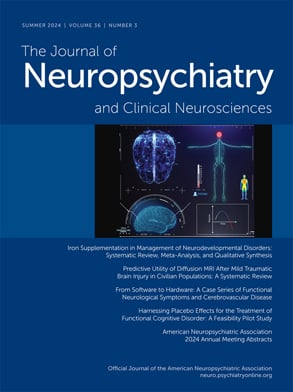In this slim monograph of approximately 200 pages Dr. Feinstein, an esteemed investigator of the clinical neuropsychiatry of multiple sclerosis, manages to pack in several books: a thoughtful review of the neuropsychiatry of MS for the expert, and introductory texts for psychiatrists, neurologists, and neuropsychologists new to this field. The latter will obtain not only a sophisticated understanding of the neuropsychiatry of MS but also a comprehensive and thoughtful approach applicable to other neuropsychiatric disorders.
In the first chapter Dr. Feinstein briefly and clearly reviews the different courses that MS may follow, including primary progressive, relapsing progressive, and the Poser diagnostic classification. He also reviews the Expanded Disability Status Scale, pointing out its unfortunate insensitivity to cognitive and psychiatric symptomatology.
Each of the chapters on depression, bipolar disorder, and psychosis includes the relevant DSM-IV diagnostic criteria, which should be helpful to neurologists. His discussion of the vexed problem of distinguishing between a causal and a coincidental relationship of MS with these psychiatric disorders in the MS patient emphasizes how imaging studies may or may not be helpful in this regard. Here and throughout the book he describes the pros and cons of varying approaches to quantitating lesions as seen by magnetic resonance imaging in MS and relating them to neuropsychiatric manifestations. His discussion of depression exemplifies his balanced approach. He reminds the physician not to let even florid imaging abnormalities make her forget that the multiple losses suffered by the MS patient may lead to depression, while also presenting a study indicating that active (gadolinium-enhancing) lesions correlate with depressive symptoms. His sections on treatment are also well balanced, indicating the importance of both somatic and psychotherapeutic modalities. Dr. Feinstein underscores the importance of identifying suicidal ideation in patients with MS. His chapter on pathological laughing and crying conveys the difference between these phenomena and true affective symptoms.
In the five chapters dealing with cognitive dysfunction, Dr. Feinstein discusses the course, recognition, and significance of the variety of defects seen in MS. These chapters include an overview of cognitive functions, the best way to test them, and the relevant neuroanatomy. For example, he describes the different types of memory and the differential involvement of the different frontal lobe circuits in cognition. He points out the insensitivity of the Mini-Mental State Examination and reviews a variety of individual tests and batteries that are more useful; it would have been helpful, however, had Dr. Feinstein provided a reference to a standard neuropsychology text to supplement his descriptions. He describes both the clinical importance of identifying cognitive impairment and the need to do this in a way that will not overwhelm the patient by seemingly adding yet another loss. He describes the well-established role of compensatory strategies (making lists, keeping objects in the same place) but points out the importance of developing remediative approaches—including drugs, which should be assessed for cognitive effects during their clinical trials. His chapter on neuroimaging and cognitive dysfunction provides an elementary but thorough overview of MR imaging and spectroscopy and critically reviews studies attempting correlations between various measures of MRI abnormalities and cognitive deficits. His last chapter is a very clear and useful description of subcortical dementia.
The bulleted lists at the end of each chapter are extremely useful. In addition to highlighting the key points of each chapter, they can be used as an enhanced table of contents, or if read consecutively can provide the novice with an introductory overview. The large number of MR images are well reproduced and appropriately labeled and captioned. The brief case vignettes are successful in translating the data into clinical terms.
I have some disagreements with Dr. Feinstein. For example, regarding steroid-induced psychiatric disorders Dr. Feinstein, in my opinion, overemphasizes the florid manifestations and neglects the less obvious but annoying effects such as anxiety that may occur after the conclusion of pulse therapy. Furthermore, fatigue and potential psychiatric side effects of interferon are given short shrift. In the discussion of memory, the concept of working memory is underdeveloped. There is also no mention of sexuality. There are no references past 1996.
However, these are minor complaints. In addition to its valuable information regarding neuropsychiatric aspects of MS per se—sure to make it popular with investigators in the field—the volume offers an excellent introduction to imaging, neuropsychological testing, and relevant psychiatric issues for those new to all or some of these aspects of MS. It will enable better communication among neurologists, psychiatrists, and neuropsychologists and epitomizes how fruitful and exciting a truly integrated neuropsychiatric approach to an illness can be. I would think that investigators would want Dr. Feinstein's book on their shelf both for their own perusal and to lend to trainees, at least some of whom will become converts to this field. I look forward to the next edition.

